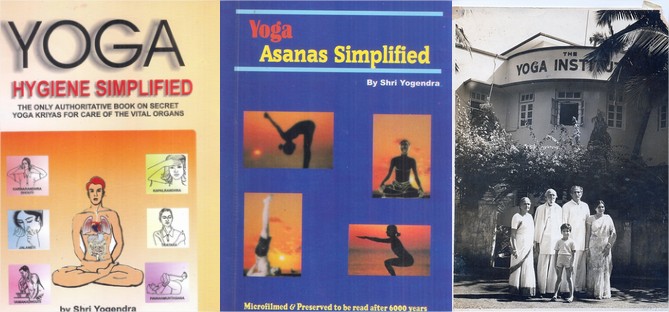Back in 1939, a team of experts from Atlanta’s Oglethorpe University that was hunting for unique examples of modern civilisation on Earth landed at The Yoga Institute (TYI) in suburban Santa Cruz in what was then Bombay (now Mumbai).
They met its founder, Mani Haribhai Desai — revered as yoga guru Shri Yogendraji — and discussed with him various facets of the ancient Indian science of Yoga, which leads to immense physical, mental, psychological and spiritual benefits.
“They were so impressed by Shri Yogendraji’s knowledge and expertise on the subject that they decided to include some of his books and literature on yoga for their ‘Crypt of Civilisation’ (CoC) — a time-capsule whose contents were being finalised by the university (and was sealed in 1940, to be opened only in 8113 AD),” said TYI Assistant Director Hrishi Yogendra.
Hrishi is the 29-year-old grandson of Shri Yogendraji, and along with his mother Hansaben, is carrying ahead the family legacy of propounding yoga for the past 100 years through TYI.
On Tuesday, TYI turned 100 and on Friday, President Ram Nath Kovind, Maharashtra Governor C.V. Rao, Chief Minister Devendra Fadnavis, Union Minister of State for AYUSH Shripad Y. Naik and other dignitaries will be attending the centenary celebrations here.
Elaborating, he said the Oglethorpe University team selected three English yoga titles penned by Shri Yogendraji and one by his wife Sitadevi, which are now stored in the CoC time-capsule in micro-film format.
They are: “Hatha Yoga Simplified”, “Yoga Hygeine Simplified”, “Yoga Asanas Simplified” (all by Shri Yogendraji), and Sitadevi’s book, “Yoga-Physical Education for Women”.
This collection is probably the only contribution from India which lies for posterity in the CoC, as indicated in a letter received by Shri Yogendraji from the Oglethorpe University nearly eight decades ago.
“Yoga is already around 5,000 years old. By the time the CoC is reopened, this ancient Indian science will be over 11,000 years old, providing a timeless wealth to the then people on Earth,” Hrishi told IANS.
According to the Oglethorpe University’s website, the COC is the oldest and largest millennial time-capsule of its kind in the world, an airtight chamber measuring around 57 square metres, and buried in a 20x10x10 feet room with a two-feet-thick stone floor below and seven-feet-thick stone floor above it.
The CoC was planned by then Oglethorpe University President Thornwell Jacobs — called the ‘Father of the Modern Time Capsule’ — in 1936 to build an extraordinary time-capsule designed to store records for over 6,000 years, on an unprecedented, epic scale.
Jacobs believed his generation could be the first to perform what he later termed as “our archaeological duty”, an obligation to provide future historians a thorough and accurate record, scientifically selected and preserved, of life in the 20th century.
The CoC was sealed on and buried on May 28, 1940, to be reopened on May 28, 8113 AD, located in Phoebe Hearst Hall of the University in Atlanta, Georgia, US.
Barring knowledge about the modern civilisations, the CoC has no other items of value and remains out of bounds for all.
“The first successful attempt to bury a record for any future inhabitants (of Planet Earth)” was how the Guinness Book of World Records (now Guinness World Records) described the initiative on the CoC’s Golden Jubilee in 1990.
India also has a handful of time-capsules buried in different parts of the country.
To mark the Silver Jubilee of Independence on August 15, 1972, then Prime Minister Indira Gandhi had buried a ‘Kalpaatra’ time-capsule near the Red Fort, to be reopened after 1,000 years.
However, the subsequent Janata Party government unearthed it in 1977 and it was lost forever, with its contents never made public.
A time-capsule was buried near the IIT-Kanpur auditorium in the presence of then President Pratibha Patil and another in Mahatma Mandir in Gandhinagar in Gujarat, both in 2010.
Mumbai’s Alexandra Girls English Institution buried a time-capsule in 2014, which will be reopened in 2062, on the school’s bi-centennial.
